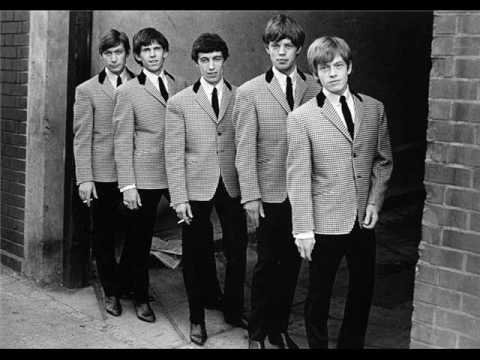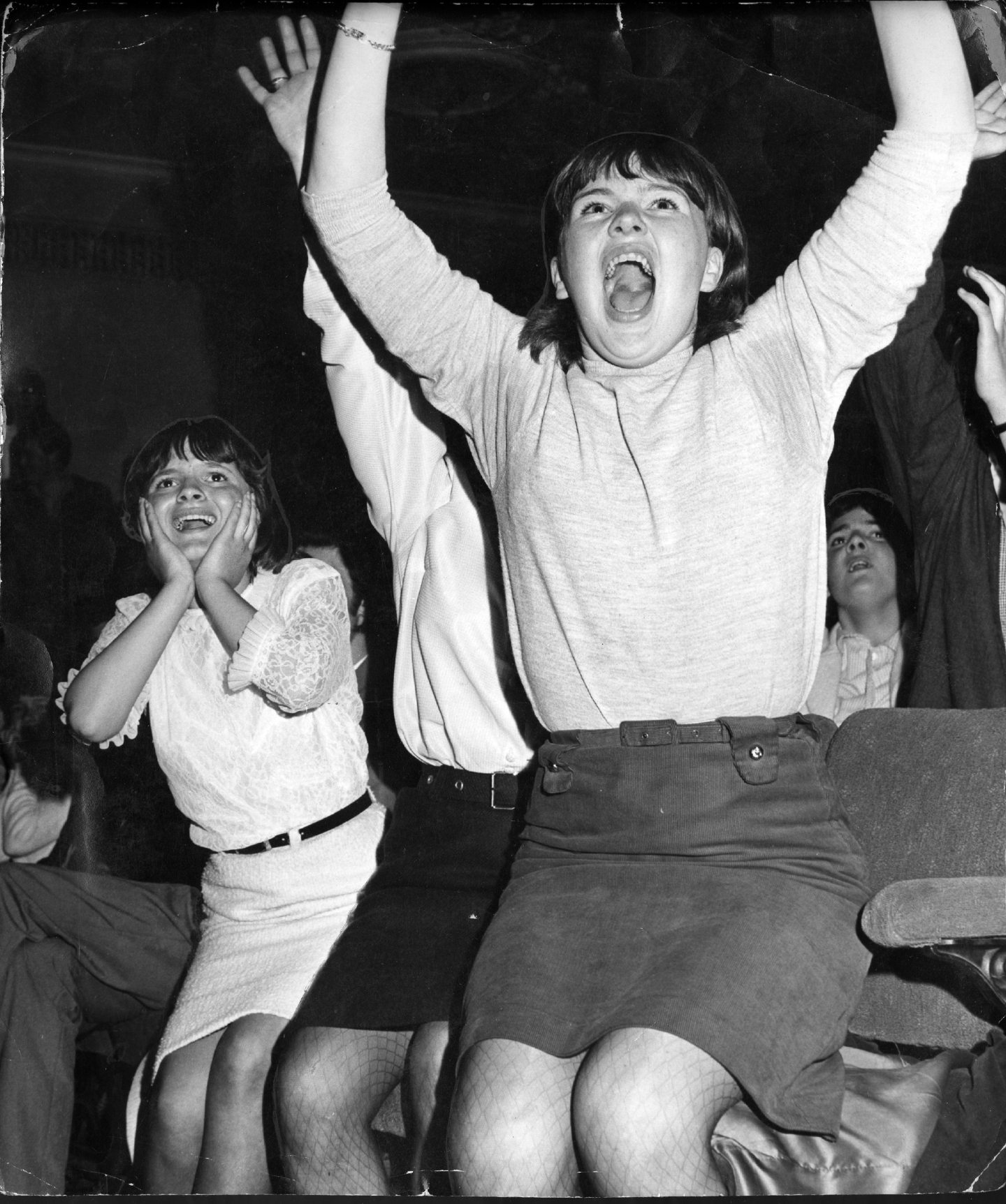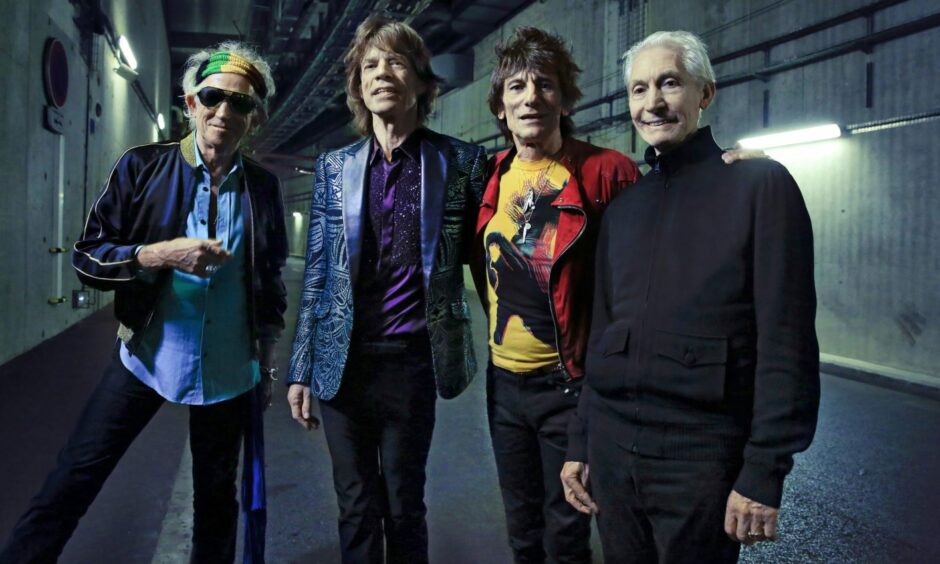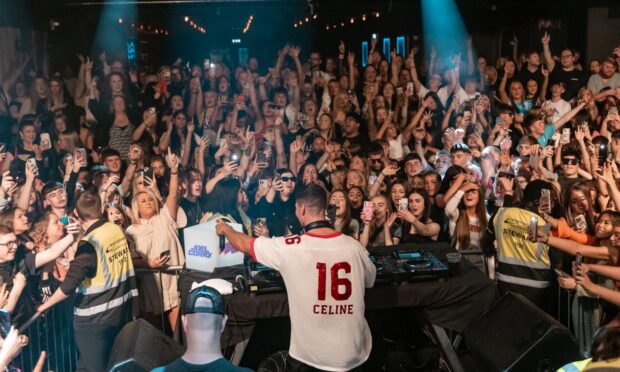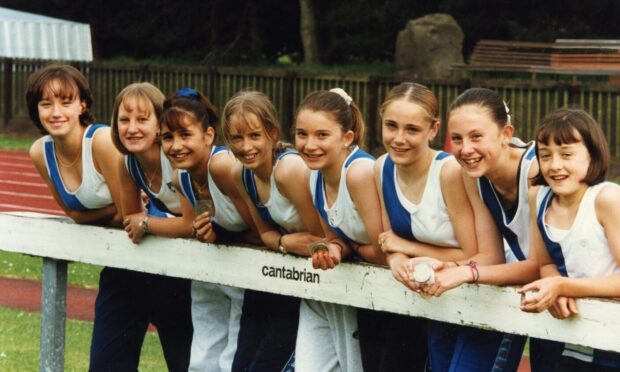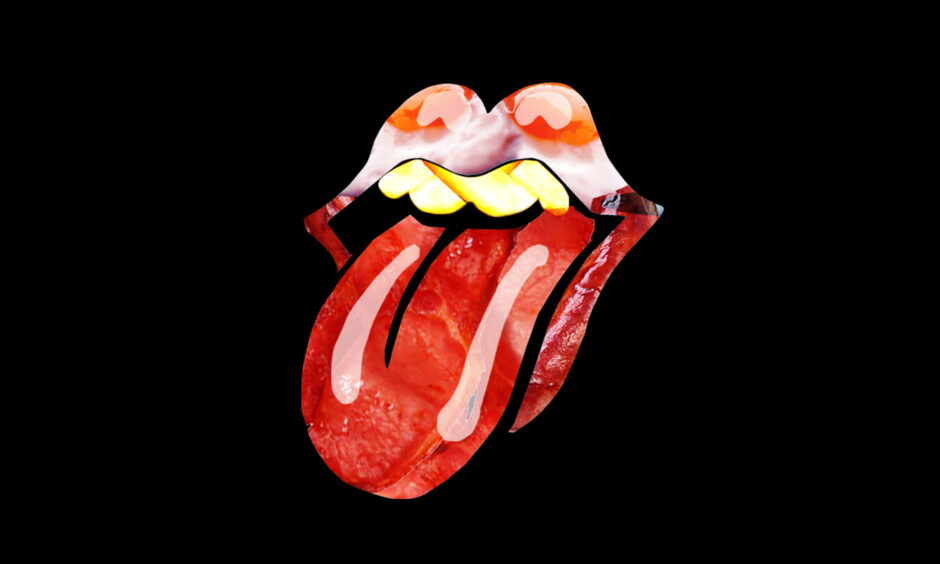
It was the meal of sausages, eggs, bacon and chips that had Mick Jagger singing the praises of Laurencekirk.
The fry-up gave the rooster-strutting Rolling Stones frontman Satisfaction and prompted him to sing a song for the locals 55 years ago.
The band left for Aberdeen afterwards and were involved in a car crash when their chauffeur-driven car collided with another vehicle at the rear entrance of the Capitol on June 17 1965.
No one was injured and the Stones hardly noticed the bump as they raced for the safety of the venue, where they performed in front of screaming girls who tore their hair, wept, waved, sobbed, and raced down the aisles and struggled with police and ushers.
The band performed songs including Not Fade Away, Little Red Rooster, It’s All Over Now, The Last Time, Time Is On My Side and Everybody Needs Somebody To Love.
The Rolling Stones ‘look awfully like lassies’
But after the gig all the band could talk about was the slap-up meal they enjoyed in the country pub before the show.
“We had a great meal on the way up,” Jagger said.
“Laurencekirk, I think it was.
“The people were very nice.”
Guitarist Brian Jones and bass player Bill Wyman told how there was a surprise sing-off following the slap-up meal.
“After two mad shows at the Usher Hall in Edinburgh we set off by road for Aberdeen,” said Wyman.
“We stopped off for a fry-up at a country pub in Laurencekirk.
“A 75-year-old character named Tom Cairney sang Scots folk songs to us.
“In a broad accent he told us: ‘You look awfully like lassies but I like ye!’
Jones said: “Mick sang a folk song for them.”
The band were performing in the north-east during their third European Tour, which also included dates in Glasgow and Edinburgh.
A chance meeting in 1962 with childhood friend Keith Richards and blues guitarist Brian Jones had led to the formation of the Rolling Stones and a contract with Decca Records the following year.
When their first single was released in June 1963, Jagger quit the London School of Economics and assumed leadership of the group that was to become the greatest rock band in the world.
“I never finished my studies at the London School of Economics but I’m not sorry,” Jagger said.
“I’ve no regrets about anything.
“We don’t give much thought to the future but we’re not likely to change our way of life overnight.
“Things move slowly.
“As we get older we’ll move into different circles gradually.”
The following evening the band performed two shows in Dundee at the Caird Hall.
Before the gig they were taken to Broughty Ferry Rock Garden for a photo shoot for teen girl magazines Romeo and Jackie.
It was the calm before the storm as ambulance men described the scenes at the Caird Hall as “worse than the Tommy Steele riots” in April 1958.
Steele was regarded as Britain’s first teen idol and he was knocked unconscious and “almost torn apart” in Dundee when his right arm was twisted up his back, his shirt was ripped off and his hair was pulled from his head by admirers.
There were 1,500 at the first house when the Rolling Stones performed where the fans managed to generate enough excitement to give the stewards and ambulance staff good practice for the battle which was to come.
Only four girls had to be removed in the first house.
At the second, with about 2,000 fans crammed in, the Marryat Hall next door, was turned into a casualty station after 40 screaming and sobbing girls were treated by ambulance crews after becoming hysterical and fainting.
One unconscious girl was taken to Dundee Royal Infirmary but was later sent home.
One fan succeeded in breaking the cordon of 50 stewards – who were mostly ex-wrestlers – and ran on to the stage, where she hugged and kissed Jagger.
She was dragged off by two burly stewards to the wings.
The Courier report said: “For several minutes the floor of the hall became a battle ground as the girls were dragged or carried up the aisles into the Marryat Hall.
“Rows of girls jumped up on the seats, swaying in time to the Stones’ beats.
The fans don’t mean to break the seats.”
Mick Jagger.
“One girl, who had been taken out several minutes earlier, came charging back down the centre aisle straight into the arms of four waiting stewards.
“She was promptly carted out again – this time for good.”
The fans left behind a litter of dolls, papers, autograph books and sweets and a number of broken seats.
After the final song, many girls, who were still in the venue, were sobbing with disappointment because the band had gone.
Teenager Christine Wolanin managed to get backstage to give Brian Jones a belated 21st birthday present of a ‘gonk’ with a kilt, plaid and tartan bonnet.
“I picked up all the scrap pieces of material lying around the house and I have been working on Tattie Bogle, as I call it, for the past three weeks,” said the Lawside Academy pupil.
“I’ve even been doing bits to it lying in bed.”
The group ran from the back of the Caird Hall door in Castle Street to a waiting car.
Only a handful of girls were there as the car roared off and a policeman grabbed a girl who attempted to throw herself in front of the car.
The band spent the evening at the Gleneagles Hotel before heading off to Scandinavia.
Jagger defended the group’s followers after the Dundee gig.
“The fans don’t mean to break the seats,” he said.
The band were supported by the Hollies, Doris Troy, Johnny, Mike and the Shades, and the West Five.
Support band Johnny, Mike and the Shades were dogged by a series of misfortunes before taking the stage.
Singer Johnny Cannon had to appear solo at the Caird Hall after Mike took ill while leaving London to start the tour.
The group’s van broke down and when they finally got to Edinburgh the bass guitarist Phil’s £150 Gibson guitar was stolen along with some money.
They got back on the road to travel to Aberdeen for the show the night before Dundee and heard funny noises coming from the car before a wheel fell off.
Bad luck also struck Doris Troy who had to retire after only three numbers at Dundee after failing to recover from sinus trouble which made her miss the Aberdeen show.
The Stones had already performed in Aberdeen and Dundee the previous May in 1964 on a pop package tour when they were just starting out on a career which now rivalled that of The Beatles.
The Rolling Stones would be back in Aberdeen…
The Stones would later return to the Capitol for a warm-up show before their European Tour in 1982 which was the band’s first in Britain for six years.
Richards said before the 1982 gig: “I need this to keep me young.
“When we started this band we thought we had about two or three years.
“Now it’s habit and it’s absolutely vital that it works on the road.
“We need constant contact with a living audience.
“We’re so excited about the prospect of doing Britain again after so long.
“Wherever we might make our home now, Britain is where our roots are.”
The Rolling Stones – stories behind the songs
You Can’t Always Get What You Want
Fans will know there is a mysterious Mr Jimmy mentioned in the third verse of this Stones classic from 1969.
Jimmy Hutmaker was a local character in Excelsior, Minnesota, where the group endured a woeful early concert in 1964.
When Mick Jagger went into a store there and asked for a Cherry Coke, he was told they had sold out, and Mr Jimmy told him: “You can’t always get what you want”.
Jumpin’ Jack Flash
The enigmatic Jack Flash was Keith Richards’ gardener.
He was not known for doing anything in a flash when he could relax and take all day about it.
The story goes that Richards and Jagger had spent the previous evening trying to write songs, and Jagger was wakened in the morning by footsteps outside the house.
He asked who it was, Richards replied: “That’s Jack, the gardener, Jumpin’ Jack.”
The guitarist started to strum a few chords, a half-awake Jagger for some reason added the word “Flash” and they had another hit in the making.
Beast of Burden
This is another reference to Keith Richards’ trouble with addiction.
He really did have to take a back seat for a large chunk of his Stones’ career, leaving Jagger to hold everything together.
So this was written as a heartfelt apology, with lyrics asking the singer to let his guitar man make a bigger contribution, now he was well again.
Their tour of China, which was eventually cancelled because of a virus, was notable because the Chinese authorities banned four Stones songs, this being one of them.
Let’s Spend the Night Together
Forced to change the words to “Let’s spend some time together” on US TV, the recording features some unlikely folk on percussion — the police.
The studio was raided on a drugs hunt, and two officers were kept occupied when they were asked to beat their truncheons to add some drum sounds.
It reached number 3 in the UK, but when USA radio stations banned it and played the B-side, Ruby Tuesday hit number 1 instead.
Start Me Up
This was the song that nearly got away — but earned them a fortune in the end.
The Stones had tried to do this song in a Jamaican reggae style, recording it more than 70 times but never quite getting a version good enough to release.
At some point during those many takes, frustrated by it all, they had done a jokey rock version, and promptly forgotten all about it.
Years later, someone was sifting through their hundreds of unreleased recordings and listened to the 70 reggae versions before suddenly finding the rock one.
They went straight into the studio and recorded it as a rocker, a giant computer firm gave them multi-millions to use it in an advertising campaign, and it was also a huge worldwide hit.
Story of the band
In total they have released 25 studio albums, 10 live albums and 92 singles. In 1989 The Rolling Stones were inducted into the Rock and Roll Hall of Fame.
The Stones began to take shape in March 1962, when Brian Jones, an already established guitarist on the London blues scene, befriended singer Mick Jagger, guitarist Keith Richards and bassist Dick Taylor.
The quartet shortly formed a group with drummer Tony Chapman and pianist Ian Stewart, making their debut as the Rollin’ Stones at the Marquee Club on July 12 1962.
Within six months, Taylor and Chapman were gone, replaced by bass player Bill Wyman and drummer Charlie Watts.
Stewart was moved into the role of road manager and sideman.
The quintet conquered the world until June 1969 when Brian Jones was sacked following substance struggles.
Within a month, Jones had died, and his replacement, Mick Taylor, made his debut only two days later in front of 500,000 fans at Hyde Park.
The line-up stayed together for five years before Taylor left following creative differences and the Stones recruited Ronnie Wood from The Faces on guitar in 1975.
Bill Wyman decided to leave at the end of 1992 and since then they’ve officially been a quartet.
